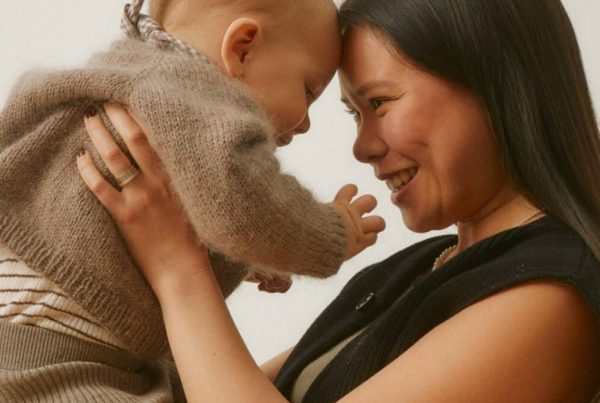What can disqualify you from being a surrogate?
Reproductive Endocrinologists and fertility specialists have an ethical obligation to ensure surrogates are medically fit to carry a pregnancy. The disqualifications for surrogacy can vary depending on the country or jurisdiction, as laws and regulations differ across different regions. If you’re a potential surrogate, read about surrogacy guidelines for specific states.
Here are some of the general reasons for surrogacy disqualifications:
Surrogate Location
If a women interested in surrogacy resides in a “no go” state for surrogacy, she would not be able to pursue surrogacy in most instances. Michigan, Louisiana, and Nebraska have the most restrictions making surrogacy extremely hard to pursue in those states. In Michigan, commercial surrogacy is currently considered a felony. Other states put heavy restrictions on commercial surrogacy making surrogacy mostly non existent in those locations e.g. New Jersey and Virginia where only “altruistic” surrogacy is permitted. Other states like Arizona and Indiana consider surrogacy contracts unenforceable. Read more about surrogacy laws across the United States.
Surrogate Age Can Cause Disqualifications for Surrogacy
Fertility clinics have age restrictions for surrogates; some states have laws specifying appropriate ages for surrogacy. Generally, surrogates should be at least 21 years old and younger than 42. Pregnancy can be physically demanding and may pose certain risks, particularly for women older than 40. As women age, they may be more susceptible to complications such as gestational diabetes, hypertension, or other medical conditions that can affect both the surrogate and a developing fetus. By setting an age limit, fertility clinics aim to reduce the potential risks associated with pregnancy.
Medical or Psychological Conditions Can Lead to Surrogacy Disqualifications
Certain medical or psychological conditions may disqualify women from becoming a surrogate. There are several health conditions where surrogacy is contraindicated because of the potential risks it poses to the surrogate’s health or the well-being of the unborn child. These include heart disease, uncontrolled hypertension, kidney disease, diabetes, certain autoimmune disorders such as lupus, cancer, as well as infectious diseases such as hepatitis, syphilis, and tuberculosis.
Mental health is also carefully considered and surrogates must go through a psychological evaluation to assess emotional stability and general well being. Women with schizophrenia, bipolar disorder, or severe depression are excluded from surrogacy. A history of substance abuse or ongoing substance dependency will exclude a woman from being a surrogate due to concerns about the impact of substance use on the pregnancy and a developing fetus.
Poor General Health Can Be a Disqualification For Surrogacy
A potential surrogate must be in good physical health to ensure a safe and successful pregnancy. Individuals with underlying health conditions that could pose risks to themselves or the unborn child are disqualified. A surrogate must also have a good Body Mass Index, generally in the range of 18 to 30.
Previous Pregnancy Complications
A history of pregnancy complications will disqualify a woman from becoming a surrogate. This includes pre-term birth, gestational diabetes, hypertensive disorders such as preeclampsia, gestational hypertension, or chronic hypertension, placental abnormalities including placenta previa (when the placenta partially or completely covers the cervix) and placental abruption (when the placenta detaches from the uterine wall prematurely), Intrauterine growth restriction (IUGR), twin-to-twin transfusion syndrome (TTTS), and stillbirth.
Precarious Living Situation
A potential surrogate must have secure housing either as a long-term lease or a home that she owns. She must not depend on surrogacy income to meet basic needs and cannot be on any form of government assistance including housing (Section 8) or food assistance (SNAP).
Her home must be free of dangerous toxins such as lead, mold, and methamphetamines residues. She should also not be employed in a job that requires that she be exposed to chemicals or other hazards. This may include nail or hair salons, though this may vary by clinic.
Non-Citizenship or Uncertain Resident Status
Potential surrogates must be United States citizens or have permanent resident status to participate in a surrogacy arrangement in the United States.
No Children of Her Own
The requirement of having your own children and previous childbirth experience is in place for several reasons, including psychological and emotional readiness. Surrogacy is a complex and emotionally involved process that requires a significant commitment. Having your own children or previous childbirth experience can indicate that you have experienced the physical, emotional, and psychological aspects of pregnancy. This experience may provide a better understanding of the potential challenges and emotional implications involved in carrying a child for intended parents.
Having gone through a pregnancy and childbirth can provide valuable medical and obstetric experience. Surrogates who have already given birth have demonstrated their ability to carry a pregnancy to term and successfully deliver a child. This experience may be seen as an indicator of the surrogate’s ability to navigate the physical demands and potential complications that can arise during pregnancy.
It’s also essential that a potential surrogate has already experienced the joys and responsibilities of parenthood. This requirement helps ensure that the surrogate has a happy and stable family life of her own. A minority of surrogates face infertility following a surrogacy journey. While surrogacy itself does not directly cause infertility, there are certain factors related to surrogacy that can potentially impact a woman’s fertility or reproductive health after being a surrogate. Surrogacy involves assisted reproductive technologies, such as in vitro fertilization (IVF) and embryo transfer, to achieve pregnancy. These procedures involve hormonal stimulation which may have temporary effects on a woman’s reproductive system. While these procedures are generally safe, there is a small risk of complications, such as infection or injury to the reproductive organs, which could potentially affect future fertility. Surrogates may also carry multiple pregnancies, particularly if multiple embryos are transferred. Multiple pregnancies can increase the risk of certain complications, such as preterm birth or gestational diabetes, which could potentially increase the risk of infertility-related conditions. With any pregnancy comes the risk of complications that could damage reproductive organs or necessitate a hysterectomy; women who want to become surrogates should be done building their own family with no plans for additional children.
Willingness to Following Medical Protocols
Willingness to follow doctor’s orders is crucial in surrogacy due to the potential risks involved. Pregnancy and childbirth come with inherent risks, and these risks can be heightened due to factors such as the potential for multiple pregnancies, the use of assisted reproductive technologies, or the presence of underlying medical conditions. Following a doctor’s orders helps ensure the surrogate’s health and well-being are protected during the pregnancy. It’s also important to ensure the best outcomes for the Intended Parents and their hope of a successful pregnancy.
Intended Parents rely on the surrogate to carry their child. By following the advice of medical professionals, a surrogate helps maximize the chances of a successful pregnancy and the anticipated result for intended parents who are eagerly awaiting the arrival of their child. Compliance with medical recommendations is crucial for increasing the probabilities of a successful surrogacy pregnancy.
The primary objective of surrogacy is to bring a healthy child into the world. A surrogate’s willingness to follow medical protocols and guidelines demonstrates her commitment to fulfilling her role in accordance with the agreed-upon terms. Failing to adhere to medical advice could lead to breach of contract and potential legal implications, in addition to jeopardizing the safety of any unborn children.
There are, however, some medical recommendations that are optional depending on the preferences of the parties involved. This includes home vs. hospital birth plans, views on selective reduction in the event of multiples, and attitudes towards vaccines such as Covid-19. It’s important to discuss health protocols and your comprehensive birth plan during the matching period to make sure all parties are in agreement.
Willingness to Undergo a Criminal and Personal Background Check
Surrogacy involves the transfer of legal and parental rights from the surrogate to the Intended Parents. Conducting a criminal background check helps identify any past criminal activities, including fraud and identity impersonation. It’s also important to assess a surrogate’s character and suitability. Surrogacy requires a high level of trust and responsibility. A personal background check may involve evaluating the surrogate’s personal history, lifestyle, and social relationships. This assessment helps determine if the surrogate possesses the qualities, stability, and maturity necessary to fulfill her role as a surrogate and provide a safe and nurturing environment for the child during pregnancy. Conducting background checks can provide reassurance and peace of mind to the Intended Parents, demonstrating that appropriate measures have been taken to assess the surrogate’s character, integrity, and suitability for the role.
Additionally, surrogacy is subject to legal regulations and many jurisdictions require thorough background checks as part of the surrogacy process. These checks help ensure that the surrogacy arrangement is in compliance with applicable laws, protecting the rights and well-being of all parties involved.
FAQ: Disqualifications For Surrogacy
What are the general reasons why a woman may not be approved for surrogacy?
- Location: Some states have restrictions or prohibitions on surrogacy, making it difficult or impossible to pursue in those regions.
- Age: Surrogates should typically be between 21 and 42 years old.
- Medical or psychological conditions: Certain health conditions or mental health disorders may disqualify women from becoming surrogates due to potential risks to their own health or the well-being of an unborn child.
- Poor general health: Underlying health conditions that could pose risks to the surrogate or the unborn child may disqualify a woman from becoming a surrogate.
- Previous pregnancy complications: A history of certain pregnancy complications, such as pre-term birth or gestational diabetes, may exclude a woman from becoming a surrogate.
- Precarious living situation: Surrogates must have secure housing and not depend on surrogacy income for basic needs. Their home must be free of dangerous toxins.
- Citizenship or permanent resident status: Potential surrogates must be United States citizens or have permanent resident status.
- No children of your own: Having previous childbirth experience is typically required to demonstrate understanding and readiness for the surrogacy process.
- Willingness to follow medical protocols: Following doctor’s orders is essential to protect the surrogate’s health and ensure the best outcomes for the intended parents.
- Willingness to undergo a criminal and personal background check: Background checks are conducted to assess suitability and ensure the safety of the child and intended parents.
Can a surrogate experience infertility as a result of being a surrogate?
While surrogacy itself does not directly cause infertility, there are certain factors related to surrogacy that can potentially impact a woman’s fertility or reproductive health after being a surrogate. These factors include assisted reproductive technologies used during the surrogacy process, the potential for multiple pregnancies, and the risk of complications during pregnancy. It’s important for surrogates to consider their own family-building goals and be done building their own family before pursuing surrogacy.
Why are criminal and personal background checks necessary for surrogates?
Criminal and personal background checks are conducted to ensure the safety and well-being of the child, assess the surrogate’s character and suitability, comply with legal requirements and regulations, and build confidence for the intended parents. These checks help identify any past criminal activities that may pose a risk to the child, evaluate the surrogate’s personal history and stability, and provide reassurance to the Intended Parents with respect to the surrogate’s character and integrity.











